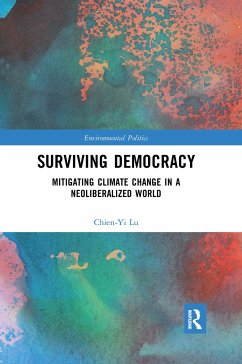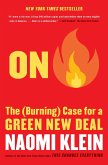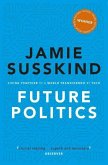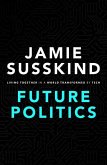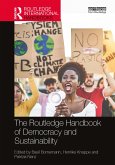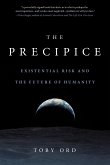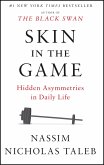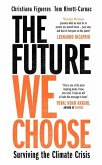Is democracy, in its neoliberalized form, responsible in part for bringing us to the brink of self-destruction and the policy inertia that is doing away with our chances of survival? Surviving Democracy probes the way democracy became neoliberalized and the role neoliberalized democracy plays in our dealings with-causing, understanding, denying, and mitigating-climate change.
Defining neoliberalism as the art of exclusion through inclusion, Chien-Yi Lu treats climate change as collateral damage of the neoliberal order established to ensure upward power and wealth redistribution. Highlighting the role money played in the "free" competition of ideas between Keynes and Hayek, she investigates the resulting global structure, wherein the wealthy and powerful sit above the market and democracy, and the way this structure fundamentally contradicts with honest climate mitigation. Central to the structure is neoliberal elites' leveraging of the fluid relationship between the market and the state. Merging citizen power with consumer and investor powers is therefore imperative to the success of climate action. While expediting the bursting of the carbon bubble is an obvious answer, it is the discussion of the meat bubble that brings the book full circle, linking our survival to neoliberalism, inclusion, and democracy.
Surviving Democracy probes the role democracy plays in our dealings with-causing, understanding, denying, and hopefully, mitigating-climate change.
Defining neoliberalism as the art of exclusion through inclusion, Chien-Yi Lu treats climate change as collateral damage of the neoliberal order established to ensure upward power and wealth redistribution. Highlighting the role money played in the "free" competition of ideas between Keynes and Hayek, she investigates the resulting global structure, wherein the wealthy and powerful sit above the market and democracy, and the way this structure fundamentally contradicts with honest climate mitigation. Central to the structure is neoliberal elites' leveraging of the fluid relationship between the market and the state. Merging citizen power with consumer and investor powers is therefore imperative to the success of climate action. While expediting the bursting of the carbon bubble is an obvious answer, it is the discussion of the meat bubble that brings the book full circle, linking our survival to neoliberalism, inclusion, and democracy.
Surviving Democracy probes the role democracy plays in our dealings with-causing, understanding, denying, and hopefully, mitigating-climate change.
"An extraordinary work that ties the climate emergency squarely to the neoliberal world model in ways many may have suspected but no one had yet spelled out in such clarity and depth. I opened this book and found that I could not close it until reading through to the end. It's deeply impressive, rich, lucid, moving, and makes me wonder -- how does it happen that one person comes to know so much?" - James K. Galbraith, The University of Texas at Austin and author, Inequality: What Everyone Needs to Know
"This book serves as wake-up call: for US Political Science and its inattention to the climate crisis; for defenders of Europe as a progressive leader on the environment; and, for those who doubt the extent to which organized interests undercut democratic governance. Ambitious in scope, sharply written and drawing on a range of key thinkers, the book offers important ideas on the relationship between democracy and climate change." - Justin Robertson, City University of Hong Kong
"We live in a moment of bubbles, and this book reminds us just how crucial it is for us to understand and to deflate them. Fast" - Bill McKibben, co-founder 350.org
"This book serves as wake-up call: for US Political Science and its inattention to the climate crisis; for defenders of Europe as a progressive leader on the environment; and, for those who doubt the extent to which organized interests undercut democratic governance. Ambitious in scope, sharply written and drawing on a range of key thinkers, the book offers important ideas on the relationship between democracy and climate change." - Justin Robertson, City University of Hong Kong
"We live in a moment of bubbles, and this book reminds us just how crucial it is for us to understand and to deflate them. Fast" - Bill McKibben, co-founder 350.org

